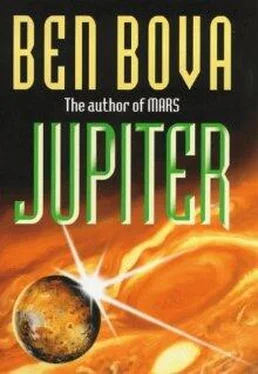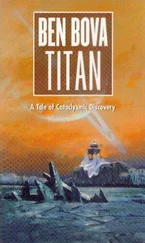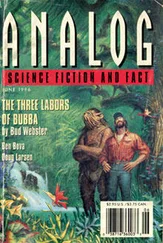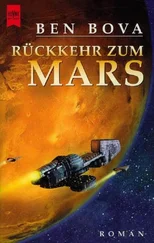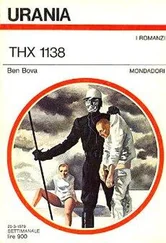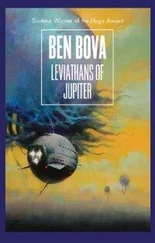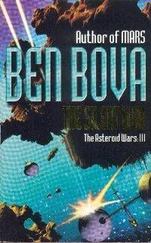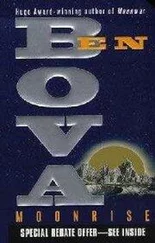Ben Bova - Jupiter
Здесь есть возможность читать онлайн «Ben Bova - Jupiter» весь текст электронной книги совершенно бесплатно (целиком полную версию без сокращений). В некоторых случаях можно слушать аудио, скачать через торрент в формате fb2 и присутствует краткое содержание. Год выпуска: 2000, ISBN: 2000, Издательство: Hodder & Stoughton, Жанр: Космическая фантастика, на английском языке. Описание произведения, (предисловие) а так же отзывы посетителей доступны на портале библиотеки ЛибКат.
- Название:Jupiter
- Автор:
- Издательство:Hodder & Stoughton
- Жанр:
- Год:2000
- ISBN:0-340-76764-2
- Рейтинг книги:4 / 5. Голосов: 1
-
Избранное:Добавить в избранное
- Отзывы:
-
Ваша оценка:
- 80
- 1
- 2
- 3
- 4
- 5
Jupiter: краткое содержание, описание и аннотация
Предлагаем к чтению аннотацию, описание, краткое содержание или предисловие (зависит от того, что написал сам автор книги «Jupiter»). Если вы не нашли необходимую информацию о книге — напишите в комментариях, мы постараемся отыскать её.
Jupiter — читать онлайн бесплатно полную книгу (весь текст) целиком
Ниже представлен текст книги, разбитый по страницам. Система сохранения места последней прочитанной страницы, позволяет с удобством читать онлайн бесплатно книгу «Jupiter», без необходимости каждый раз заново искать на чём Вы остановились. Поставьте закладку, и сможете в любой момент перейти на страницу, на которой закончили чтение.
Интервал:
Закладка:
“She’s an old ship, cranky and creaky, from what I hear. But a good ship. Reliable. High performance rating.”
He sounded to Grant as if he were trying to convince himself of something he didn’t actually believe.
“Two years,” Tavalera went on, “and then I go home, free and clear.”
“That’s good.”
“You’ll be out here four years, won’tcha?”
“That’s right.”
Tavalera shook his head like a man possessed of superior wisdom. “They really suckered you in, didn’t they? Four years.”
“I won’t have to do another two when I’m fifty,” Grant pointed out. Then he added, with just a little malice, “But you will.”
If Tavalera caught Grant’s irritation, he gave no notice of it. He merely waggled one long-fingered hand in the air and said, “Maybe I will and maybe I won’t. By the time I’m fifty, I could be too flickin’ important for the New Morality to screw with me.”
Again Grant found himself wondering if Tavalera was probing his loyalty. Is this conversation being monitored? he asked himself.
Raising his voice a notch, he replied, “I’ve always felt that Public Service is something you should be glad to do. Give something back to the community. It’s important, don’t you think?”
Tavalera leaned back in his chair and gave Grant a crafty look. “Yeah, sure. But there’s important and really important. Know what I mean?”
The ship quivered. Just a slight tremor, but it was so out of place that both Grant and Tavalera immediately looked up. Grant felt a sharp pang in his gut. Tavalera’s eyes flicked wide for an instant.
“Rendezvous maneuver,” Tavalera said, after a moment’s startled silence.
“Yes, of course,” said Grant, trying to make it sound nonchalant.
Pushing himself up from his chair, Tavalera suggested, “Come on, let’s go down to the observation bubble and watch.”
“But the captain said—”
Laughing, Tavalera headed for the hatch. “C’mon, you don’t have to stay in your cage every second of every day. What’s she gonna do if she catches us, throw us off the ship?”
The communications chime on the bulkhead screen sounded. “Incoming message for Grant Archer,” announced the comm system’s synthesized voice.
Grateful for the interruption, Grant said, “Put it onscreen, please.”
The screen remained blank. “This is a private communication,” the computer warned.
A message from Marjorie, Grant thought. Tavalera will leave me to see it alone; if he doesn’t, I can ask him to leave.
“On-screen, please,” he repeated.
To his surprise, the screen showed the twin seals of the International Astronautical Authority and the New Morality Censorship Board. Before Grant could react, it flicked off, to be replaced by a lengthy document headed with the Words secrecy agreement.
Grant saw that Tavalera’s eyes were bulging.
“I’d better go to my bunk and read this on my personal handheld,” Grant said.
“I guess you better,” Tavalera said in a small voice.
As Grant brushed past him to step out into the passageway, Tavalera said, “I never figured you for an NM agent.”
“I’m not,” Grant blurted, wishing it were true.
“Yeah. Sure.”
Grant headed for the claustrophobic compartment he shared with Tavalera, while the young engineer went the other way, toward the observation blister. Once alone in his cramped bunk, Grant read the secrecy agreement very carefully. Twice. Three times. He was being ordered to sign it. The document did not leave him any choice. If he failed to sign, the New Morality could cancel his Public Service contract and have him returned to Earth “at the convenience of the IAA personnel on-station.” That meant all the time in transit to Jupiter would have been totally wasted. And all the time spent waiting for transport back to Earth, and the transit time itself, would also be wasted.
Worse yet, Grant got the distinct feeling that once back home he would be assigned the lowliest, meanest, dirtiest Public Service job that the authorities could find for him. They dealt harshly with dissenters and objectors.
So he signed the secrecy agreement. In essence, it was a simple document. It stated that any and all information, data, knowledge, and facts that he acquired while serving his Public Service obligation were classified Secret and were not to be divulged to any person, agency, or computer network. Under punishment of law.
Grant felt whipsawed. The New Morality wanted him to report on what the scientists were doing; the IAA wanted to swear him to secrecy. Then a new understanding dawned within him: They don’t trust each other! The IAA and the New Morality may share the responsibility for running station Gold, but they don’t trust each other. They don’t even like each other. And they’ve put me in the middle. Whatever I do, I’m going to be in trouble, he realized.
Wishing both sides would just leave him alone, wondering exactly what was going on among the researchers at Gold that had to be kept so secret, Grant signed the document and—as directed by the automated legal program—held his palm-size computer to first his right eye and then his left, so that whoever was registering his agreement recorded both his retinal prints.
All these precautions left Grant feeling baffled, worried, and more than a little angry. They had one good effect, however. Once Roberts established its coorbital rendezvous with the space station and Grant toted his one travelbag down to the airlock hatch, Tavalera said goodbye to him with newfound respect in his eyes.
It’s almost funny, Grant thought. For most of the trip out here I was halfway convinced that Raoul was a New Morality informer. Now he’s certain that I’m one.
He almost laughed as he shook Tavalera’s hand in a final good-bye.
Almost. Then he realized that he actually was a New Morality informer. At least, that’s what the NM expected him to be.
“WELCOME TO THE GULAG”
Grant at last got a look at the orbiting research station, a glimpse, nothing more, as he ducked through the transfer tube that had been set up to connect the station’s docking hub with Roberts’s airlock.
That brief glimpse disturbed him even more.
He was silently offering a prayer of thanksgiving at his safe arrival and a supplication to “make me worthy, O Lord, of the task You have given me.”
As he looked up through the transfer tube’s overhead window, the curving surface of the station looked huge, mammoth, a gigantic looming structure that filled the observation port like a colossal arch of gray metal, dulled and pitted from long years of exposure to radiation and in-falling cosmic dust.
A childhood memory flashed through Grant’s mind: the time his parents had taken him to San Francisco and they had somehow gotten themselves lost in a seedy, dangerous part of the city near the enormous dirt-encrusted supporting buttresses of the Bay Bridge. Grant’s breath had caught in his throat; for a moment he had imagined the entire weight of that immense bridge crashing down on him, crushing him and his parents in their flimsy open-topped automobile in a thundering tangle of steel girders and ponderous blocks of stone.
As he made his solitary way through the slightly flexible transfer tube, he got that same sudden feeling: This enormous thick wheel of a station was going to come crashing down upon him any moment now. Again his breath caught and for just a heartbeat of an instant he felt very small, very vulnerable, very close to death.
The instant passed. Grant finished his prayer as he strode on alone through the tube; he was the only person transferring from the freighter to the research station. The flooring felt soft and spongy beneath his boots, especially after so many months of the freighter’s steel decks. Everything’s fine, he told himself. He remembered that the instant he stepped through the hatch at the far end of the tube he was officially engaged in his Public Service duty; every second would count toward his four-year commitment. Every second would bring him closer to Marjorie, to home, to the life he wanted.
Читать дальшеИнтервал:
Закладка:
Похожие книги на «Jupiter»
Представляем Вашему вниманию похожие книги на «Jupiter» списком для выбора. Мы отобрали схожую по названию и смыслу литературу в надежде предоставить читателям больше вариантов отыскать новые, интересные, ещё непрочитанные произведения.
Обсуждение, отзывы о книге «Jupiter» и просто собственные мнения читателей. Оставьте ваши комментарии, напишите, что Вы думаете о произведении, его смысле или главных героях. Укажите что конкретно понравилось, а что нет, и почему Вы так считаете.
